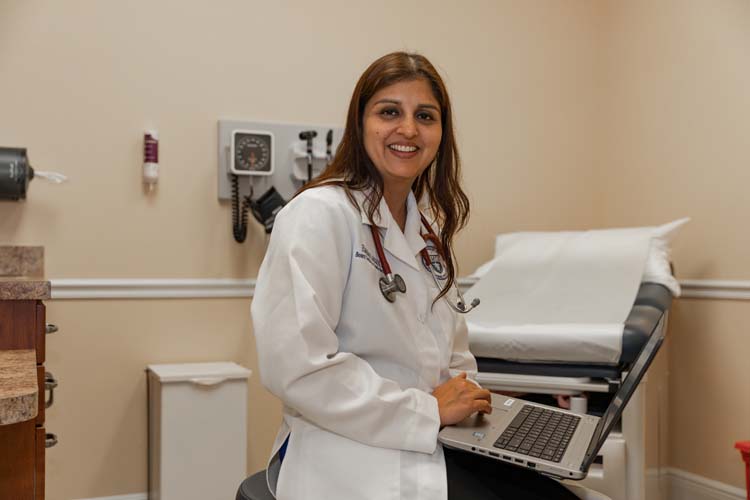
Some 55 million Americans go on a diet each year and – just in 2017 – those dieters spent more than $3 billion on a wide range of diet plans, pre-packaged meals, supplements, shakes, gym memberships and more, according to Marketdata LLC, a 38-year old market research firm in Rockville, Maryland.
Despite that huge expenditure, nearly four out every 10 U.S. adults remain technically obese – meaning they have a body mass index (BMI) over 30 – and one in 13 adults in the U.S. is severely obese. That’s according to a March 2018 report from the Centers for Disease Control.
It seems many people are not getting their weight-loss money’s worth. And that gets under the skin of Vero Beach primary care physician Dr. Raman Ashta, who also is certified by the American Board of Obesity Medicine.
She firmly believes people would be better off seeking weight-loss advice from a licensed medical doctor. Not a TV commercial.
Weight problems pose a major health risk for many chronic diseases, including sleep apnea, heart disease, stroke, type 2 diabetes, osteoarthritis and certain kinds of cancer, but the problem, according to Ashta, isn’t just shedding pounds. It’s also changing lifestyles.
Asked if there was such a thing as a ‘one-size-fits-all’ diet plan, Ashta pauses briefly and says “no. I don’t think there is one. For weight loss, everybody has different challenges, so how can the same plan fit everybody? We now know there’s more to weight gain than just eating.
“There are genetic factors. There are metabolic factors. We should not focus on short-term goals when we’re looking at weight loss,” Ashta continues, adding that a better move is to concentrate “on being healthy and eating healthy.”
Ashta says there is some good news in the field of medical weight loss.
She freely admits “weight-loss drugs have had a bad rap in the past. A lot of them have come and gone because of their side effects.” But there are newer, better drugs available now that work very differently than their predecessors.
“Instead of just [trying to] suppress appetite, new weight-loss drugs that have come out in the past few years affect the neurohormonal centers in the brain. They’re pretty sophisticated.”
Those drugs include Contrave, Qsymia and Belviq, all of which require a physician’s prescription.
Though improved, the drugs are not a magic cure.
“Prescription weight-loss drugs [should be] used in addition to – not instead of – diet and exercise,” according to the Mayo Clinic.
Ashta agrees wholeheartedly.
While just the words “exercise” and “diet” make some people cringe, Ashta has some tips to offer.
“You probably should start with small amounts of exercise doing something that you enjoy, [but] your food intake and food habits always have to change, as well.”
And that change, says Ashta, can start first thing in the morning at the breakfast table.
A big proponent of fresh fruits and whole grains, Ashta points out, “I spend a lot of time educating my patients that [most] cereal is not healthy. No matter if it is high-fiber, no cereal can be heart healthy if it’s processed grain.”
Whole grains, she says, are a far better option.
And at day’s end, according to Ashta, a late-night TV snack of a bunch of grapes is a far wiser choice than a bowl of potato chips.
“I learned so much more than was ever taught in a medical school while getting my obesity medicine certification,” says Ashta.
With her expanded knowledge, she’s now offering comprehensive evaluations and a weight-loss clinic for those seeking custom-designed, medically supervised weight loss programs.
Dr. Raman Ashta is with Steward Healthcare’s Sebastian River Medical Center. Her offices are directly across the street from the Indian River Medical Center’s campus at 3745 11th Circle in Vero Beach. The phone number is 772-564-2485.



